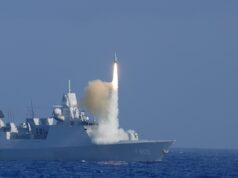Labour MP and Chair of the Defence Committee Tanmanjeet Singh Dhesi has questioned the Ministry of Defence on its use of British-made steel in defence procurement and whether steps are being taken to boost domestic steel production for military programmes.
In two written questions submitted on 18 June 2025, the Slough MP asked for estimates on the proportion of British steel used by the UK defence industry over the past year, and whether the Ministry was taking action to increase domestic capabilities for defence-relevant steel production.
Responding on behalf of the Ministry of Defence, Minister of State Maria Eagle stated that the UK steel sector “provides vital support to the UK’s defence capabilities”, but acknowledged that defence contractors source steel from both UK and international suppliers due to specific technical requirements.
“Steel used in our major Defence programmes is sourced by our prime contractors from a range of UK and international suppliers, as programmes may often have requirements for specialist steel which cannot be sourced in the UK,” Eagle said.
She added that the data on steel origin is detailed in the Department for Business and Trade’s annual Steel Public Procurement report, available on gov.uk.
The Minister also outlined steps being taken under a forthcoming Defence Industrial Strategy, aimed at better aligning defence procurement with national security and economic priorities.
“This will include a review of the UK’s approach to critical supply chain elements, such as steel, alongside reviewing and reconfirming the areas where the UK needs to retain sovereign production capacities onshore,” Eagle said.
In parallel, a broader cross-government Steel Strategy is being developed, intended to set out a long-term industrial vision. According to Eagle, this will “promote long-term growth, and align with wider priorities, including the trade strategy, Strategic Defence Review and the upcoming Modern Industrial Strategy.”














The main thing is that UK has both virgin steel making and recycling.
The next thing is to run them in as commercial manner as possible to make them viable.
It doesn’t necessarily make sense to make small batches of highly specialised used steel – but to have the capacity to do so. Maybe as part of an alliance where UK makes one grade and another ally makes yet another grade but the key is to do it at viable scale – otherwise defence manufacturing raw materials inflate.
1. Specialist steel production requires large scale capital investment. There’s no commercial viability, therefore that money would have to come from the taxpayers.
2. You would have to pay for the upkeep and the relevant skilled staff to maintain an unused plant. Again this would require taxpayers money
3. The current producers of specialist have no incentive to pay someone else to produce steel. Sweden, France and the US will block any deal that produces steel that could be competitive to them.
4. The purpose of the defence budget is to pay for the defence of the United kingdom and its allies, not to pay for vote buying industrial subsidies.
5. Specialist steel production requires metals that do not geologically exist in the UK. To make submarine steel you need imported manganese. You are just as dependent on imports with specialist production as you are without it.
7. There is no source of Aluminium ore in this country and yet during the largest war in human history, this country built 1000s of aluminium framed aircraft.
“ 1. Specialist steel production requires large scale capital investment. There’s no commercial viability, therefore that money would have to come from the taxpayers.”
I’m talking about being able to feed materials to places like ForgeMasters.
Specialty steels, depending on what specifically, are not always crazy expensive.
2. You would have to pay for the upkeep and the relevant skilled staff to maintain an unused plant. Again this would require taxpayers money
Again depends on exactly what kind speciality steel we are talking about.
Alloying / tempering / rolling are different things.
We do have the tempering capacity for post production.
3. The current producers of specialist have no incentive to pay someone else to produce steel. Sweden, France and the US will block any deal that produces steel that could be competitive to them.
Indeed. I’d be interested in how a sovereign capacity is blocked and I was thinking more of AUS / JPN.
4. The purpose of the defence budget is to pay for the defence of the United kingdom and its allies, not to pay for vote buying industrial subsidies.
Precisely so.
I fear that the seal has been broken in this.
5. Specialist steel production requires metals that do not geologically exist in the UK. To make submarine steel you need imported manganese. You are just as dependent on imports with specialist production as you are without it.
You could make that argument about almost all manufacturing! Importing and/or storing smallish tonnages of manganese, vanadium and molybdenum is hardly the biggest deal.
7. There is no source of Aluminium ore in this country and yet during the largest war in human history, this country built 1000s of aluminium framed aircraft.
That slight contradicts your point 6?
Imports of steel isn’t a big deal either. Duplicating steel production has no economic benefits nor does it make the UK less dependent on imports. What is the supposed advantage of all this production, why do it. If you can build 1000s of aircraft during the largest war in human history there’s zero reason to spend billions of taxpayers money on uneconomic steel production.
The economics largely don’t work because of carbon taxes, energy and outdated facilities costs.
We do need indigenous virgin steel making in a modern efficient facility.
My presumption was that we had massive steel production during the war with indigenous supply of much perhaps most of the ingredients, maybe I am basing that on a misplaced understanding of events. I will go check.
Bauxite would be needed as well to make Aluminium,in which case we mainly get from Jamaica, West Africa, Australia and South America
Like we used to have in Scotland with its own hydropower?
Again I thought the massive Aluminium production site in North Wales (now a surfing resort) was set up to exploit locally available raw materials and hydro power. I did read up on its history but can’t remember the details so maybe bauxite was imported don’t know, just that though created for strategic reasons, imports were cheaper ‘peace was assured’ leading to its closure.
I agree, this is the kind of thing we should do with our allies, no country on earth makes every grade of steel it makes.
And the thing is we do already carry out small batch alloying for very specific things.
Anglesey Aluminium closed due to the cost of electric and the lack of a new contract with Wylfa nuclear power station.